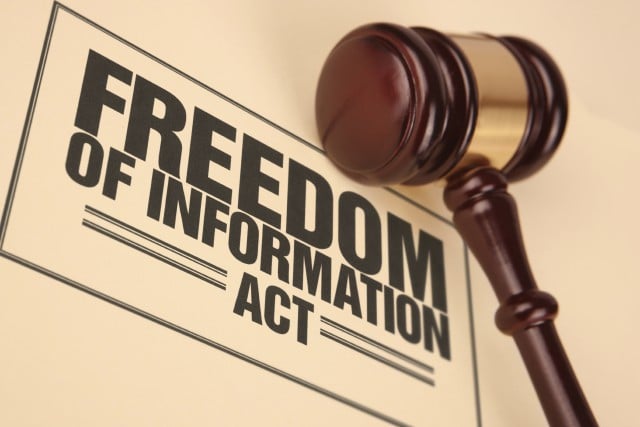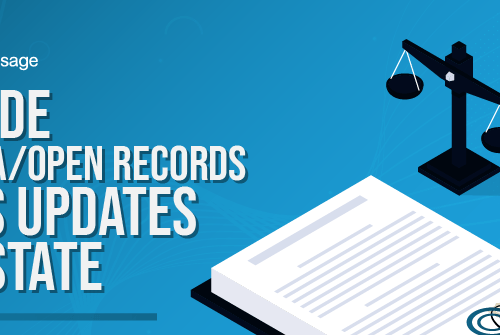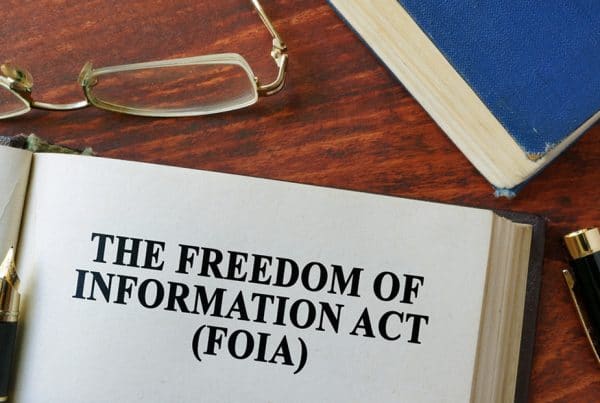The Freedom of Information Act (FOIA) is among the key legal tools private citizens and journalists have for furthering government transparency. Nowadays, more citizens are aware that they have the right to access federal records – including email, instant messaging, social media, text/SMS messages, and phone calls – that are related to the conduct of the government.
This has led to a significantly increased number of FOIA requests in the recent years. According to the latest report from FOIAProject.org, the number of FOIA requests during the fiscal year 2016 has set a record high of nearly 800,000 – with agencies responding by processing over 750,000 requests the following year.
Challenges Facing Agencies: Timely Response and Record Retention
For agencies, the pressure of responding to FOIA request is a never-ending challenge. In a 2014 analysis by Washington-based Center for Effective Government, it was revealed that the top 15 federal agencies, which processes the most request under the FOIA, are still falling short of providing information promptly.
Apparently, failure of many agencies to meet FOIA deadlines stems from a variety of reasons, including, but not limited to staffing shortfalls, manual processing of the request, and the ever-complex archiving and managing of public records. When it comes to data retention and oversight of public communications, agencies are still having trouble since many are still relying on their legacy systems to capture and manage more complex records, such as SMS messages and instant messages.
However, despite the hurdles, many agencies are also finding that they can improve their efficiency of complying with FOIA through technology. Several solutions are now at agencies’ disposal to help automate FOIA requests, and more importantly – streamline their record retention and archiving capabilities.
FOIA Archiving Technology and Portals: Key to Coping with FOIA
One of the most effective methods agencies are now using to comply with FOIA is web portals. In fact, in Making the Grade: Access to Information Scorecard 2014, FOIA websites are given generally high marks in several areas of concern, such as:
- Giving the public the ability to file and track requests and appeals electronically.
- Proactively providing information in electronic reading rooms.
- Posting full contact information (names, phone numbers, email addresses) for FOIA staff.
Right now, there are multiple FOIA management systems available that agencies can use to ramp up their current website. These systems provide not only web portal features, but also invoicing and collection system for FOIA fees, and automated capture of FOIA requests via any channel.
However, according to Sean Moulton, co-author of the Access to Information Scorecard 2014, agencies must go even further to fully meet the requirements of FOIA archiving. Agencies leveraging archiving solutions must expand their capabilities to capture text messages as this channel becomes more accepted in today’s workplace.
Text message archiving platforms can help agencies meet requests for all SMS communications between an agency and industry or individual. The use of such technology is even implied in the recent directive from the National Archives and Records Administration (NARA), which requires agencies to manage their emails and mobile text messages in electronic format by December 31, 2019.
With a mobile archiving solution such as TeleMessage, agencies can enhance their FOIA capabilities through the following features:
- Capture and index messages via different channels, including SMS, email, social media, and instant messaging.
- Retain text messages from agency-issued mobile devices, as well as public-related conversations from personal mobile devices.
- Search across all communication archives and analyze conversations to understand the content of messages.
- Gain full control over records to prevent unauthorized access, alteration, concealment, or destruction of records.
Contact TeleMessage today to learn how our mobile archiving solutions can capture and retain your SMS, MMS, and Calls. We can help you meet the FOIA mandate and respond to open requests for messaging content quickly and efficiently.




